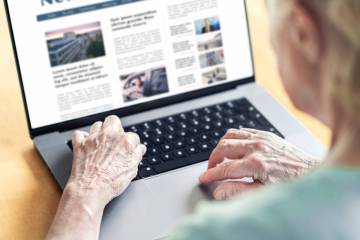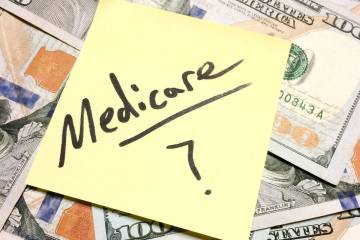Is a COVID-19 passport your ticket to normal life?
Anyone who wants to fly to America must present evidence that they’re negative for COVID-19, and with over 400 million vaccinated against the insidious virus worldwide, ‘vaxications’ are on the rise. But photos or print-outs of vaccination records are easily lost or faked – and often illegible. So it’s no surprise that tech companies are jumping into the fray to provide solutions.
On Thursday, a Qatar Airways flight put digital vaccine passports to the test for the first time.
Weigh in: What do you think about COVID-19 digital passports? take our poll
Discover: ‘Vaxications’ are bringing the travel industry back to life – but at what cost?
That flight leveraged something called the Travel Pass app from the International Air Transport Association, and it’s just one solution out there. Among the most hotly anticipated is the Digital Health Pass from IBM, which will be used by Moderna, which aim to provide organizations with a way to bring people back to shared physical locations safely, from offices and classrooms to airline flights. While some detractors of vaccine passports say they present unprecedented threats to privacy, security and freedom, IBM tells GOBankingRates that the COVID passport was created with “privacy as the starting point.”
In an exclusive discussion, Anthony Day, Blockchain Partner, IBM Global Business Services, explains that the IBM Digital Health Pass is designed to support organizations as they begin to reopen by enabling individuals to present a verifiable health status to gain access to a public location, such as a sports stadium, airplane, university or workplace.
“Because the IBM Digital Health Pass is built on blockchain technology, it allows individuals to share their health status through an encrypted digital wallet on their smartphone, without the need to share the underlying medical and personal information,” Day says. “With blockchain, there is no need to have a central database of healthcare information that could be a target for hackers. Instead, DHP creates a “hash” or fingerprint of the data that is captured on the blockchain thus becoming immutable. The verification process takes place against that hash instead of the medical information, protecting privacy.”
Learn more: You won’t believe what hackers can do with your SSN
Discover: The crypto craze continues: Bitcoin ATMs are popping up across the US
Blockchain – otherwise known as DLT, or Distributed Ledger Technology – records any event or transaction (think of these as “blocks”) in an encrypted way, making the information immutable, safe and verifiable. While blockchain is the technology underlying Bitcoin (cryptocurrency – literally encrypted money – couldn’t exist without it), the technology has many different applications, particularly in healthcare. The Digital Health Pass, which is built on IBM’s blockchain technology, will allow users to show only encrypted verification of their vaccination status without revealing more personal information openly.
In that sense, it aims to help organizations verify health credentials for employees, customers and travelers based on criteria specified by the organization, such as test results, vaccination records and temperature checks.
Learn more: Can employers require you to get the vaccine… or else?
Discover: The US could save $339 billion in 3 weeks with this COVID safety strategy
Dr. Sean Manion, the Chief Science Officer for ConsenSys Health – part of ConsenSys, one of the world’s biggest blockchain companies – tells GOBankingRates that if it works as promised, the passport will allow those who have been vaccinated and have access to the necessary technology to volunteer and share this information in a hassle-free manner.
“It will allow businesses and governments to ask for this information in an effort to minimize public health risks at venues big and small,” Manion says. “The use of blockchain allows for some level of privacy in what is shared with the business. An airline, cruise ship, concert venue or even smaller businesses like restaurants could use this to screen their potential customers.”
With “COVID passports,” many critics are concerned about very real privacy issues around health data, however. A 2020 study from the journal Healthcare found that nearly 160 million people were subject to healthcare data breaches in just the last five years. Asked about these concerns, IBM’S Day says that the company took a privacy-first approach when designing the Digital Health Pass.
“For example, once a vaccine is administered to an individual, the individual is issued a verifiable health credential that is only included in that individual’s encrypted digital wallet on their smartphone,” Day tells GOBankingRates.
Learn more: Six best blockchain stocks to buy right now
Discover: Moderna starts COVID vaccine trial in children, stock soars
“Individuals control what they share, with whom, and for what purpose. By using Digital Health Pass, this eliminates the need for an airline, hotel or other hospitality company to access or process personal health data. Instead of viewing an individual’s personal health records, with IBM Digital Health Pass, these companies would receive a ‘green light’ or ‘red light’ to verify an individual has provided an authenticated negative test result or vaccination record. This ensures accuracy of the information and protects the individual’s privacy.”
Day adds that since IBM Digital Health Pass is a platform, it can be integrated into other applications for a smooth user experience while, for example, checking in with an airline or entering a stadium.
“In this way, credentials created on one platform will be recognized [interoperable] by another to create a seamless experience for individuals as they seek to travel across borders,” he says.
ConsenSys Health’s Manion says that there have been a lot of similar efforts, both public and private toward this type of health surveillance tool. “Some non-profits like Common Pass and Good Health Pass have been started to coordinate results of multiple types of passes from various companies. There is a lot of good will working towards solutions like these and also a lot of money to be made in this area,” Manion says.
In terms of privacy health concerns, Manion says that these new digital health tools need to have rigorous examinations and the public needs to see the actual data to determine whether it is safe.
Learn more: Who is getting vaccines? Survey notes income disparity in vaccine recipients
Discover: CDC, Dollar General could partner to expand COVID-19 vaccine availability in rural and low-income areas
“There is a lot of potential downside to this type of health surveillance technology, even when it is voluntary and has some limited privacy preserving aspects offered by blockchain. Blockchain is necessary, but not sufficient, to assist with many of the privacy issues involved,” Manion says. “Any effectiveness of these tools should be balanced with the significant downsides. This type of health surveillance technology can lead to increasing inequality, discrimination, and restriction on human rights according to recent studies by health and legal experts.”
Indeed, according to a recent study by the University of Exeter and the UK Economic and Social Research Council, while digital health passports – also referred as “immunity passports” – might contribute to a “swift return to normal life,” they also have associated risks. Most notably, the study points to questions around data privacy and human rights, “given that they use sensitive personal health information, create a new distinction between individuals based on their health status, and can be used to determine the degree to which one may enjoy their rights and freedoms.”
“The deployment of digital health passports may interfere with an array of fundamental rights, including the right to privacy, the freedoms of movement and peaceful assembly. Therefore, the laws and policies enabling the development and deployment of such digital health passports will have to strike a fair balance between the competing values of safeguarding individual rights and public health interests.”
Moderna, on its part, announced that it is committed “to working with a coalition of partners to increase education and awareness of the importance of vaccination to help defeat COVID-19.”
Learn more: 5 things you might not know about Moderna
Discover: Should you invest in vaccine stocks right now?
“We look forward to working with IBM to apply digital innovations to build connections between organizations, governments, and individuals to instill confidence in COVID-19 vaccines,” Michael Mullette, VP, Managing Director North America Commercial Operations of Moderna said in the above statement.
In the meantime, as more and more of us get vaccinated while the world awaits herd immunity, we’ll need to determine whether we’re okay handing over sensitive healthcare information to flight attendants and even the government in exchange for some semblance of the way life was pre-COVID.
Disclosure: The author has written a book about blockchain technology and its implications for healthcare with Dr. Sean Manion.
This headline has been updated to remove a reference to hacking as any concerns about these types of digital passports are generally more about privacy. Also, a correction has been made to clarify Moderna’s use of this technology.
More from GOBankingRates
What do you think about COVID-19 digital passports? Take our poll
How long $1 million in savings will last in every state
27 ugly truths about retirement
This article originally appeared on GOBankingRates.com: IBM says its new COVID-19 passport is your ticket to normal life – but some see troubles in privacy paradise






















